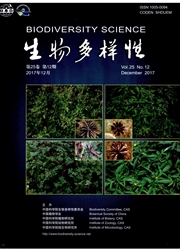

 中文摘要:
中文摘要:
旅游活动是提高自然保护区社区居民收入、缓解保护区与社区矛盾、促进生物多样性保护的重要途径之一。为评价旅游活动对自然保护区社区经济提升的现实效果,以卧龙自然保护区为案例,采用问卷调查的方法,通过分析保护区内旅游从业人员的经济收入、就业机会以及收入分配等,从一定程度上揭示旅游活动对该保护区社区居民的直接经济影响。结果表明,生态旅游可以给保护区的部分居民带来一定的经济收入,但这部分收入总量较低:保护区内的居民多从事一些较简单的旅游相关活动,对技能要求较高的活动则大多由来自保护区外的人员从事:旅游活动带来的经济收入不论是在当地相关从业人员之间还是在当地人与来自保护区外的人员之间的分配都表现出了一定的不公平性,居住位置、启动资金和技术技能是造成这种不公平现象的主要原因。依据以上调查及分析结果,论文提出了开发旅游项目、建立培训机制、设立专项基金以及逐步移民等相应对策。
 英文摘要:
英文摘要:
Theoretically, tourism can generate economic benefits for local residents, while whether the benefits can come true in reality is a crucial issue. To obtain the actual direct economic impact that tourism have on local residents, a questionnaire survey was conducted in Wolong Nature Reserve (WNR). Total income generated by tourism, employment opportunities for local participants, and income distributions were ineluded in the questionnaire. The results showed that there's a considerable gap between actual effects and theoretical expectations from tourism in WNR: the total income generated by tourism was small; the employment opportunities were limited; and the income was unevenly distributed among local participants as well as among local people and outsiders. Measures, including developing new tourism items, establishing educational projects, providing special funds, and implementing a relocation policy, were proposed to improwve the effectiveness of tourism as integrated tool for development and conservation.
 同期刊论文项目
同期刊论文项目
 同项目期刊论文
同项目期刊论文
 Responses of water erosion to rainfall extremes and vegetation types in a loess semiarid hilly area,
Responses of water erosion to rainfall extremes and vegetation types in a loess semiarid hilly area, DIVERSITY AND COMPOSITION OF WETLAND COMMUNITIES ALONG AN AGRICULTURAL DRAINAGE DITCH DENSITY GRADIE
DIVERSITY AND COMPOSITION OF WETLAND COMMUNITIES ALONG AN AGRICULTURAL DRAINAGE DITCH DENSITY GRADIE Development of a new index for integrating landscape patterns with ecological processes at watershed
Development of a new index for integrating landscape patterns with ecological processes at watershed Leaf-trait relationships of Quercus liaotungensis along an altitudinal gradient in Dongling Mountain
Leaf-trait relationships of Quercus liaotungensis along an altitudinal gradient in Dongling Mountain Integrating population size analysis into habitat suitability assessment: implications for giant pan
Integrating population size analysis into habitat suitability assessment: implications for giant pan Soil carbon sequestrations by nitrogen fertilizer application, straw return and no-tillage in China'
Soil carbon sequestrations by nitrogen fertilizer application, straw return and no-tillage in China' The effects of global warming on soybean yields in a long-term fertilization experiment in Northeast
The effects of global warming on soybean yields in a long-term fertilization experiment in Northeast Plant growth and soil microbial community structure of legumes and grasses grown in monoculture or m
Plant growth and soil microbial community structure of legumes and grasses grown in monoculture or m Sustainability evaluation of the grain for green project: From local people's responses to ecologica
Sustainability evaluation of the grain for green project: From local people's responses to ecologica Using Cs-137 technique to quantify soil conservation capacities of different ecosystems in Wolong Na
Using Cs-137 technique to quantify soil conservation capacities of different ecosystems in Wolong Na Does long-term fertilization treatment affect the response of soil ammonia-oxidizing bacterial commu
Does long-term fertilization treatment affect the response of soil ammonia-oxidizing bacterial commu The arbuscular mycorrhizal fungus Glomus mosseae gives contradictory effects on phosphorus and arsen
The arbuscular mycorrhizal fungus Glomus mosseae gives contradictory effects on phosphorus and arsen Integrated effects of slope aspect and land use on soil nutrients in a small catchment in a hilly lo
Integrated effects of slope aspect and land use on soil nutrients in a small catchment in a hilly lo Impacts of reforestation approaches on runoff control in the hilly red soil region of Southern China
Impacts of reforestation approaches on runoff control in the hilly red soil region of Southern China Effects of forest plantations on rainfall redistribution and erosion in the red soil region of south
Effects of forest plantations on rainfall redistribution and erosion in the red soil region of south 期刊信息
期刊信息
